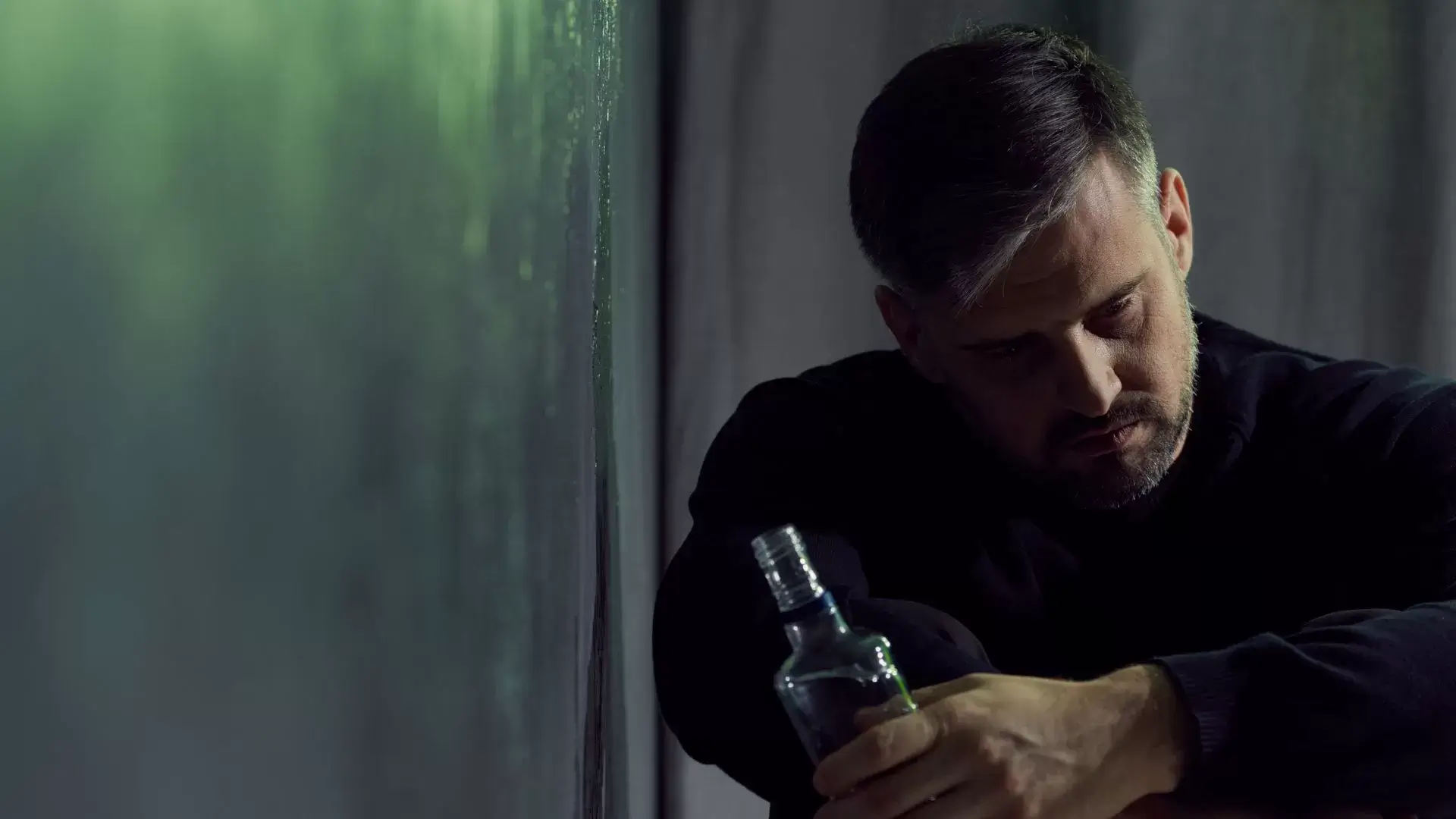Psychotherapy For Men - Professional Psychotherapy Counseling Center
We recognize that men often deal with unique mental health challenges shaped by societal expectations. Psychotherapy offers a safe space for emotional healing and exploration, helping us navigate issues like depression, anxiety, and relationship complexities. It equips us with essential tools for stress management, emotional expression, and resilience.
By addressing the stigma around seeking help, we create a supportive environment where vulnerability is seen as strength. Together, we can build healthier connections and develop effective coping strategies. If you’re interested in finding ways to enhance your emotional well-being, there’s so much more we can explore together.

About Our Psychotherapy Counselling Services
At our practice, we offer a range of psychotherapy counseling services tailored specifically for men, recognizing the unique challenges they often face. We believe that men’s mental health support is essential in fostering emotional well-being and resilience. Our therapy for stress helps men identify and manage the pressures they encounter in daily life, promoting healthier coping strategies.
In our sessions, we encourage emotional expression, allowing men to explore their feelings in a safe and non-judgmental environment. We recognize that many men struggle with relationship issues, and our counseling services can help navigate these complexities while enhancing self-awareness. By addressing underlying concerns, we empower men to build emotional resilience and improve their interpersonal connections.
Our goal is to create a supportive space where men can openly discuss their experiences and challenges. We’re committed to helping our clients develop practical tools for mental health for men, fostering a deeper understanding of themselves and their emotions. Through our psychotherapy counseling services, we aim to equip men with the resources they need to lead fulfilling lives, equipped to handle life’s ups and downs with confidence and strength.
Understanding Men's Mental Health Challenges
Men often face unique mental health challenges that can stem from societal expectations, personal experiences, and the pressure to conform to traditional notions of masculinity. This often leaves us feeling isolated and reluctant to seek help. It’s essential to recognize that depression in men and anxiety in men are common issues that deserve attention and support.
Psychotherapy for men offers a safe space for emotional healing, allowing us to explore our feelings without judgment. Through emotional regulation and stress management techniques, we can learn to navigate our mental health challenges more effectively. Trauma therapy for men can also play an important role in addressing past experiences that affect our well-being.

Addressing Men's Mental Health Stigma
Recognizing the unique challenges we face is just the beginning; breaking down the stigma surrounding men’s mental health is key to encouraging open conversations and support. Many of us grapple with emotional struggles, and this stigma often prevents us from seeking the men’s mental health support we desperately need. It’s important to understand that admitting we need help doesn’t diminish our strength; rather, it enhances our self-esteem and emotional health.
In therapy for masculinity, we can explore how managing masculinity influences our emotional well-being. By participating in psychotherapy sessions, we can confront the mental health stigma that holds us back. We’re not alone in this journey—many men in therapy are breaking barriers and finding solace in shared experiences.
Promoting mental health awareness is essential. We must actively encourage one another to discuss our feelings and seek help when necessary. By doing so, we not only foster a supportive environment but also empower ourselves and others to embrace vulnerability. Let’s commit to redefining what it means to be strong and open the door to healthier emotional lives. Together, we can create a culture where seeking help is a sign of courage, not weakness.
Coping Strategies for Stress and Work-Life Balance
Finding effective coping strategies for stress and work-life balance can make a significant difference in our overall well-being and happiness. We all face work stress, and it is vital to develop stress resilience through practical coping mechanisms. Engaging in men’s therapy can help us explore these strategies tailored to our unique challenges.
One effective approach involves incorporating mindfulness techniques into our daily routines. By practicing mindfulness, we can cultivate awareness and reduce anxiety, enhancing our ability to navigate life’s demands. Additionally, establishing clear boundaries between work and personal life can promote a healthier work-life balance, allowing us to recharge and focus on personal growth.
Emotional support is important during these times, whether from friends, family, or seeking professional help through men’s mental health services. It’s okay to acknowledge that we face life challenges; therapy can equip us with tools to manage stress effectively.
Ultimately, the goal is to create a sustainable lifestyle that prioritizes our mental health while managing responsibilities. Together, let’s commit to these coping strategies and foster a supportive environment that nurtures our well-being.
Emotional Expression and Regulation in Therapy for Men
Effective emotional expression and regulation are essential components of therapy, helping us navigate the complexities of our feelings and fostering healthier relationships. For many men, emotional expression can feel challenging, often due to societal expectations that discourage vulnerability. In therapy, we can learn to embrace our emotions, recognizing that they’re not a sign of weakness but a pathway to self-confidence and emotional balance.
By developing communication skills, we can articulate our feelings more clearly, which aids in emotional regulation. This process is imperative for managing anger and addressing past emotional trauma, allowing us to respond rather than react in stressful situations. Through men’s mental health support, we gain tools for stress reduction, transforming how we handle life’s pressures.
Therapy helps us understand that emotional expression isn’t just about sharing feelings; it’s also about recognizing and regulating them. Together, we can create a safe space to explore men and vulnerability, fostering deeper connections with ourselves and others. Ultimately, enhancing our emotional expression and regulation not only benefits our mental health but also enriches our relationships and overall well-being.
Therapy for Depression and Anxiety in Men
Depression and anxiety can weigh heavily on us as men, often leading to feelings of isolation and helplessness that can be difficult to navigate. It is crucial to seek therapy for self-improvement, where we can find men’s mental health support tailored to our unique experiences.
In therapy, we can develop emotional strength to face our mental health challenges. Approaches like cognitive therapy help us gain psychological insight into our thoughts and behaviors, while behavioral therapy empowers us to change harmful patterns. Engaging in emotional processing allows us to confront our feelings, reducing the stigma often associated with expressing vulnerability.
Gender-specific therapy acknowledges the societal pressures we face and creates a safe space for open dialogue. By sharing our experiences, we can foster a supportive environment that encourages healing and growth. Remember, it’s okay to ask for help.
Together, we can work through depression and anxiety, building resilience and understanding. We’re not alone in this journey, and with the right support, we can emerge stronger and more connected. Let’s prioritize our mental health and embrace the path toward recovery.

Trauma Therapy for Men
As we navigate our mental health, addressing trauma is often an important step in our healing journey, allowing us to confront past experiences that may still impact our lives today. Trauma therapy for men provides a safe space for us to explore these experiences, offering men’s mental health support tailored to our unique needs.
In this process, we might engage in grief counseling to process losses and emotions that contribute to our relational challenges. By focusing on self-discovery, we can better understand how our past influences our present behaviors and relationships. Managing expectations around what healing looks like is significant; recovery isn’t linear, and it’s okay to take our time.
Mindfulness for men is a powerful tool we can incorporate into our healing, helping us to stay present and grounded. We can also develop techniques for anger control, which often stems from unprocessed trauma. As we work through these men’s issues together, we create a supportive community that fosters understanding and resilience. Ultimately, trauma therapy is an essential part of our mental health recovery, guiding us toward healthier relationships and a more fulfilling life.
Anger Management and Emotional Strength
Steering through our emotions can be challenging, especially when anger becomes our primary response to stress or discomfort, but learning to manage this anger can greatly enhance our emotional strength and overall well-being. Anger management isn’t just about suppressing our feelings; it’s about understanding them. By recognizing the root causes of our anger—whether they stem from life changes, midlife crises, or other stressors—we can develop healthier coping strategies.
Men’s mental health support often emphasizes the importance of emotional clarity and conflict resolution skills. Through therapy for fathers or men and therapy in general, we can learn to express our emotions constructively, building self-confidence in the process. When we tackle anger head-on, we not only improve our own emotional resilience but also create healthier environments for those around us.
As we navigate these challenges, we can find empowerment in our journey towards emotional strength. By embracing anger management techniques, we pave the way for better relationships and a more fulfilling life. Remember, it’s okay to seek help; reaching out is a sign of strength, not weakness. Together, we can build a foundation of mental clarity and emotional well-being.
Relationship Issues and Communication Skills
Steering through relationship issues can often feel overwhelming, but improving our communication skills is an essential step towards fostering healthier connections with those we care about. As men, we may face unique challenges influenced by traditional gender roles, which can complicate our ability to express feelings and resolve conflicts.
By seeking men’s mental health support, we can gain valuable insights into our communication styles and how they affect our relationships. Counseling for men provides a safe space to address parenting challenges, addiction recovery, and other personal issues that may hinder our ability to connect with our partners and loved ones.
Focusing on our communication skills enables us to better articulate our needs and emotions, paving the way for deeper understanding and empathy. This not only enhances our relationships but also contributes to our overall men’s wellness.
Engaging in career counseling can further equip us with strategies to balance work-life dynamics, reducing stress that might spill over into our personal lives. Together, let’s advocate for mental health and learn to navigate these relationship issues with confidence and clarity.
Therapy for Masculinity and Vulnerability
Steering our relationships often reveals deeper issues surrounding masculinity and vulnerability that deserve our attention and exploration. For many of us, acknowledging our feelings can feel intimidating. Society often teaches men to suppress emotions, leading to isolation and mental health struggles. By embracing therapy, we can unlearn these harmful patterns and foster a healthier understanding of masculinity.
We offer a safe space for men to explore these challenges. By engaging in men’s mental health support, we can learn to articulate our vulnerabilities and build stronger connections. Therapy can be a transformative journey where we redefine what it means to be masculine, allowing us to express our emotions without fear of judgment.
We’re not alone in this; countless men are seeking support for their wellness. Through open dialogue and empathetic guidance, we can encourage one another to embrace vulnerability as a strength. If you’re ready to take that step, don’t hesitate to reach out to us. Together, we can create a community where vulnerability is celebrated, leading to deeper connections and a more fulfilling life.
Life Transitions and Personal Growth
During significant life changes, we often find ourselves steering through uncharted waters that can challenge our sense of identity and purpose. Whether it’s a career shift, a relationship change, or entering a new life stage, these shifts can leave us feeling lost or uncertain. It’s essential to recognize that we’re not alone in this journey; many of us share similar feelings and experiences.
Engaging in psychotherapy can be a transformative tool during these times. It allows us to explore our thoughts and emotions in a safe space, helping us to understand the underlying fears or hopes tied to our life changes. By discussing our feelings openly, we can clarify our values and goals, paving the way for personal growth.
As we navigate these shifts, we can also learn to embrace the discomfort that often accompanies change. It’s a chance to redefine who we are and what we want moving forward. With the right support, we can harness these moments as opportunities for growth, ultimately leading to a more authentic and fulfilling life. Let’s remember that every shift is a step toward becoming the best versions of ourselves.
Grief Counseling and Emotional Healing
Steering through the complex emotions of grief can feel overwhelming, but seeking grief counseling offers us a compassionate space to process our feelings and begin the journey toward healing. We often find that grief isn’t a linear path; it can twist and turn unexpectedly, leaving us feeling lost or isolated. In counseling, we can openly express our sadness, anger, and confusion without fear of judgment.
Grief counseling allows us to explore our emotions deeply and understand that it’s okay to grieve in our own way and time. We learn that expressing our feelings isn’t a sign of weakness, but rather an essential step in the healing process. Counselors can guide us in identifying healthy coping strategies, helping us to reconnect with our emotions and fostering resilience.
Moreover, sharing our experiences with others who understand can provide comfort and validation. As we navigate through this difficult time together, we can create a supportive network that encourages us to honor our loved ones while also caring for ourselves. In taking this step toward grief counseling, we’re not just seeking to heal; we’re allowing ourselves to grow and find hope again.
Addiction Recovery and Behavioral Therapy for Men
Addiction recovery can feel like an uphill battle, but with the right support and behavioral therapy, we can reclaim our lives and foster healthier habits. Many of us struggle with shame and isolation, often believing we’re alone in our challenges. Behavioral therapy provides a safe space to explore these feelings and learn effective coping strategies.
Through techniques like Cognitive Behavioral Therapy (CBT), we can identify and change negative thought patterns that contribute to our addiction. This process helps us understand triggers and develop healthier responses, ultimately leading to better decision-making. We’re not just addressing the addiction; we’re also working on the underlying issues that fuel it.
Support groups can be incredibly beneficial as well. Sharing our experiences with others who understand can help us feel validated and less alone. It reinforces the idea that recovery is a journey we don’t have to take in isolation.

Mindfulness Techniques for Emotional Well-Being
As we work on our recovery and emotional health, incorporating mindfulness techniques can greatly enhance our overall well-being and help us navigate the complexities of our feelings. Mindfulness encourages us to be present, allowing us to observe our thoughts and emotions without judgment. This practice helps us to acknowledge our feelings, rather than suppressing or avoiding them.
One effective technique is focused breathing. When we take a moment to concentrate on our breath, we can ground ourselves and reduce anxiety. Another useful method is body scanning, where we systematically focus on different parts of our body, noting any tension or discomfort. This not only promotes relaxation but also increases our awareness of how our emotions manifest physically.
Additionally, practicing gratitude can shift our mindset and improve emotional resilience. By taking time each day to reflect on what we’re thankful for, we can cultivate a more positive outlook.
Incorporating these mindfulness techniques into our daily routine can create a profound shift in how we experience our emotions, empowering us to face challenges with greater clarity and compassion. Together, we can build a healthier emotional landscape.
The Benefits of Psychotherapy for Men's Wellness
Psychotherapy can play an essential role in enhancing men’s wellness by providing a safe space for us to explore our emotions and address the unique challenges we face. Many of us carry societal expectations that discourage vulnerability, often leading to feelings of isolation or anxiety. In therapy, we can confront these pressures and find healthier ways to express ourselves.
One of the key benefits of psychotherapy is that it helps us develop emotional intelligence. By understanding our feelings, we can communicate better with others, fostering deeper connections and improving our relationships. Furthermore, psychotherapy allows us to break free from harmful patterns, enabling personal growth and resilience.
Additionally, it’s a valuable tool for managing stress and mental health issues. We can learn coping strategies that empower us in challenging situations, promoting overall well-being. The insights we gain through therapy can lead to a more balanced life, where we feel more in control and fulfilled.
Ultimately, engaging in psychotherapy isn’t just about addressing problems; it’s about embracing our journey towards a healthier, more authentic version of ourselves. By prioritizing our mental wellness, we can truly thrive.
Reach Out to Our Registered Psychotherapy Counsellors
If you’re feeling overwhelmed or uncertain, reaching out to our registered psychotherapy counsellors can be a significant step towards finding the support you need. We recognize that taking this step might feel intimidating, but we’re here to assure you that you’re not alone in this journey.
Our team of experienced counsellors specializes in addressing the unique challenges men face, from stress and anxiety to relationship issues and emotional struggles. We create a safe, non-judgmental space where you can express yourself freely and explore your thoughts and feelings.
Together, we’ll work on developing coping strategies tailored to your individual needs. We believe in the power of open communication, and we’re committed to helping you navigate your emotions effectively.
Reaching out is often the hardest part, but we’re here to support you every step of the way. Whether it’s through in-person sessions or virtual consultations, we’re dedicated to making this process as comfortable as possible.
Don’t hesitate to take that first step. Let’s work together towards a healthier, more fulfilling life. Your well-being matters, and we’re ready to help you find your path forward.
Frequently Asked Questions
How Do I Choose the Right Therapist for My Needs?
Choosing the right therapist can feel overwhelming, but we can take it step by step. First, let’s identify our needs and preferences, like the therapist’s approach or specialization. We can also consider factors like gender, location, and availability. It’s important to trust our instincts—if we don’t feel a connection, it’s okay to look elsewhere. We’re all deserving of support, so let’s prioritize finding someone who resonates with us.
What Should I Expect During My First Therapy Session?
When we attend our first therapy session, we can expect a warm and welcoming environment. Our therapist will likely ask questions to understand our background and what brings us there. It’s normal to feel nervous, but they’ll create a safe space for us to share our thoughts and feelings. We should remember that this is a collaborative journey, and we’ll begin to explore our concerns together, setting the stage for future sessions.
How Can I Prepare for Therapy Sessions Effectively?
Preparing for therapy sessions can feel a bit overwhelming, but we can take it step by step. Let’s start by reflecting on our feelings and any specific topics we want to discuss. Writing down our thoughts can really help, too. Also, we should consider setting some goals for what we hope to achieve. Finally, it’s important to approach each session with an open mind, ready to explore and grow together.
Are Online Therapy Sessions as Effective as In-Person Ones?
We’ve all wondered about the effectiveness of online therapy compared to in-person sessions. Research shows that both can be equally beneficial, depending on individual preferences and needs. Online sessions offer convenience and comfort, while in-person meetings provide a more personal connection. Ultimately, it’s about what works best for us. If we feel more at ease in one format, that’s likely the best choice for our mental health journey.
How Long Does Psychotherapy Typically Last for Men?
When we think about how long psychotherapy typically lasts, it really varies for each person, depending on individual needs and goals. Generally, we might engage in therapy for a few months to several years. Consistent sessions help us explore our thoughts and feelings, allowing for deeper understanding and growth. It’s important we remember that everyone’s journey is unique, and there’s no one-size-fits-all timeline for healing and self-discovery.

